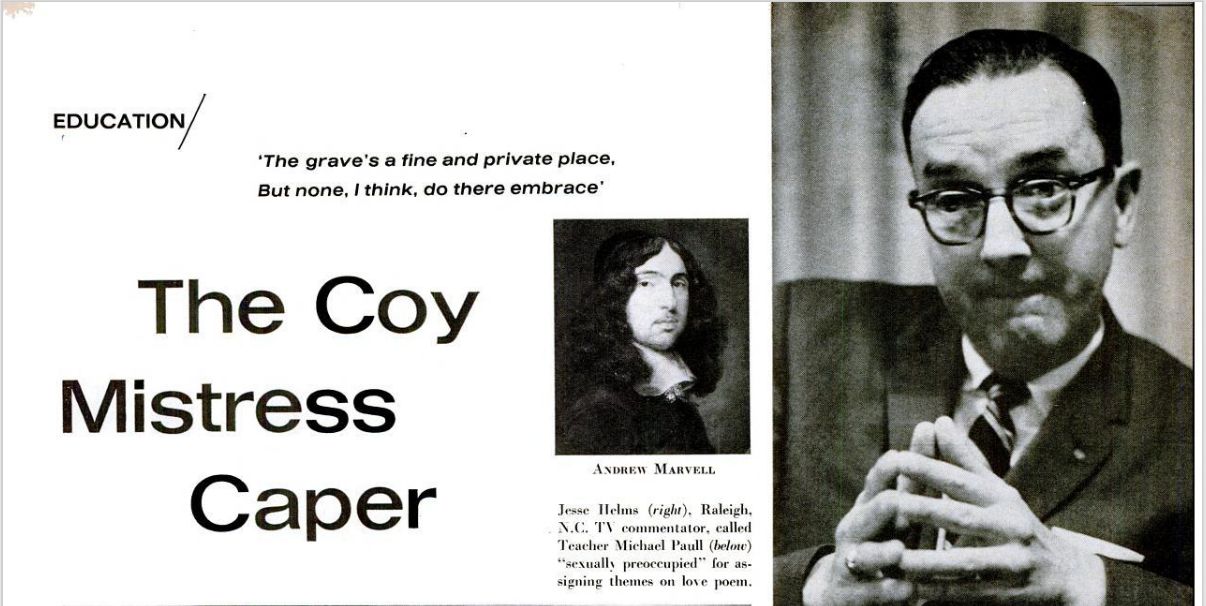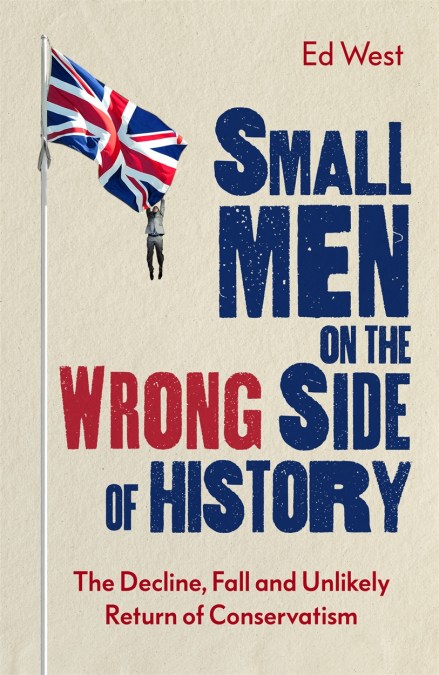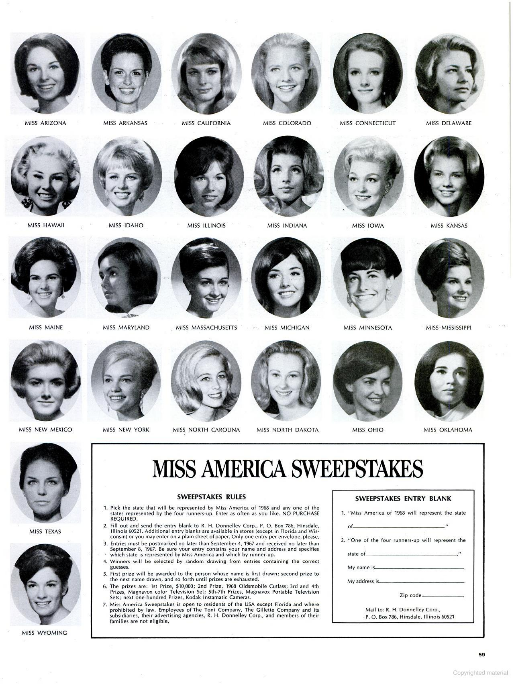
DERB’S JUNE DIARY (11 ITEMS): Packer’s "Four Americas"; "Lying Flat" In China; Notice Anything About 1967 Miss America Finalists? ETC.
07/01/2021
Packer’s "Four Americas" — Thumb-Sucker of the Month. Of all I've read this month, the opinion piece that most got me thinking (although not, in point of fact, actually sucking my thumb while doing so) was George Packer’s "Four Americas" article in Atlantic magazine.
Whoa there, Derb. Isn’t Atlantic a lefty outlet, with anti-white word-salad merchant Ta-Nehisi Coates on the masthead? And isn’t Packer himself left-progressive?
Yes and yes. Packer’s more of an old-line liberal, though (he'll turn 61 in August) and capable of talking sense for quite long stretches before lurching reflexively into mention of the "dark energies" behind Reaganite conservatism, or "the reality of planetary destruction," or how Donald Trump "aligned himself publicly with hard-core racists." I took all those quotes from the "Four Americas" piece; and no, Packer doesn’t identify any of those "hard-core racists."
So yes, he’s a Left-progressive. Further, he seems to have no acquaintance with the human sciences, a failing which normally prevents me from taking seriously anything a writer has to say about topics like meritocracy or racial inequality.
All right. Then why would I be enthusing about an article Packer’s written, a dauntingly long article? "Four Americas" — it’s actually titled "How America Fractured into Four Parts" — is 11½ thousand words, which is about ten times the length of your average broadsheet-newspaper op-ed.
Because I really like the schema Packer’s set out here, that’s why. I think it corresponds very well to reality — not a thing one normally expects from Progressives, but hey, stopped clocks.
Here is that schema in a nutshell.
- Free America. Late-20th-century conservatism: Reagan, Limbaugh, etc.
- Smart America. The globalist meritocracy.
- Real America. Sarah Palin, Donald Trump: populist nationalism.
- Just America. The Wokesters.
I've grossly over-simplified there, of course; but I do think Packer has performed an accurate survey of today’s social-political landscape in the U.S.A., and has supplied plausible accounts of how each of the four Americas emerged.
On Reddit, someone has come up with a map trying to see how this plays out electorally:

All four Americas are alive and well, but there are generational issues. Free America begat Real America; Smart America begat Just America (for which, says Packer: "A more accurate name would be Unjust America, in a spirit of attack rather than aspiration.").

Read the thing for yourself at the Atlantic website. If you've hit their paywall, flip me an email and I'll send you a copy I've made. Naughty of me, I know; but you're not going to subscribe to a Lefty magazine anyway, so there is no actual loss to Atlantic. If you really want to get deep into Packer, Atlantic tells us that "Four Americas" is adapted from his latest book, published June 15th, available for $16.84 from Amazon.
I should say finally that George Packer is not happy about the picture he’s drawn: "I don’t much want to live in the republic of any of them [i.e. the Four Americas]."
And then, this closing paragraph:
Meanwhile, we remain trapped in two countries. Each one is split by two narratives — Smart and Just on one side, Free and Real on the other. Neither separation nor conquest is a tenable future. The tensions within each country will persist even as the cold civil war between them rages on.
"Lying flat" — ChiComs battle apathy. George Packer writes that: "The turn of the millennium was the high-water mark of Smart America." There has, he thinks, been some falling-off in the enthusiasm for meritocracy this past twenty years, due to elite overproduction having intensified the rat race.
Some parallel development may be taking place in China, where the competition for good middle-class jobs is really intense.
There are widespread fears it'll get even intenser when the ChiComs raise retirement ages, currently the lowest in the world: 60 for men, 50 for most women. That’s putting the country’s Social Security system under major strain, and the ages will have to be raised, but: "Young workers grumble about raising the age. They suspect they will have to wait longer for promotions as older workers occupy jobs for longer." (Economist, June 22nd.)
A new buzz-phrase has come up on the Chinese internet this past few weeks: 躺平, tăng píng, "to lie down flat." It’s come up, and it’s going down: the ChiComs, who practice strict control over internet content, strongly disapprove of this phrase, and are doing what they can to delete all references to it.
The BBC website ran a story about tăng píng on June 3rd. Edited extract:
Young people in China exhausted by a culture of hard work with seemingly little reward are highlighting the need for a lifestyle change by "lying flat."The new trend, known as "tang ping," is described as an antidote to society’s pressures to find jobs and perform well while working long shifts …
"Lying flat is my wise movement," a user wrote in a since-deleted post on the discussion forum Tieba, adding: "Only by lying down can humans become the measure of all things."

The comments were later discussed on Sina Weibo, another popular Chinese microblogging site, and the term soon became a buzzword. The idea behind "tang ping" — not overworking, being content with more attainable achievements and allowing time to unwind — has been praised by many and inspired numerous memes. It has been described as a spiritual movement.[China’s new 'tang ping' trend aims to highlight pressures of work culture, June 2, 2021]
The invaluable WHO "Serpentza" has a good 8½-minute video about tăng píng on YouTube here.
Mrs Derbyshire has a wide circle of acquaintances in China with whom she keeps in touch by social media. Among them is at least one case of tăng píng. This young, single, well-credentialed professional man had a good and remunerative but demanding job. He also has some modest inherited rental property. We recently learned that he’s quit his job to tăng píng, living on the rental income. It’s nothing like as much as his old salary, but Mrs D. reports him as happy, with no regrets.
I expect soon to hear that these young Chinese Bartlebys are following the example of Taoist hermits of old, retiring to grass huts on remote mountainsides to "sip the wind and drink the dew" (吸风饮露).
Hey, if it reduces China’s global competitiveness, it’s all good.
One-piece bookends: a bleg. Way back in the early days of blogging, before blogs speciated into vlogs, MABs, microblogs, substacks, and so on, I coined the word "bleg." That’s a blog post begging for assistance from readers. Well, I have a bleg.
The subject here is bookends. My desk is a mess. Significant components of the mess are little clusters of books, half a dozen or so per cluster, that I’m using for reference, or have pulled from the shelf to look something up in and haven’t yet re-shelved, or want close at hand for some other reason.
These clusters stand on my desk, each kept upright by bookends. The bookends are of two types, both metal.
- A one-piece item, one of the retaining ends just a vertical, the other a springy coil.

- Two-piece items, each piece a vertical retainer on a platform.

The history of these items is as follows.
- The one-piecer I've had for decades. I brought it from England with me in the early 1980s, so it’s around forty years old, probably more. (And, yes, it looks it.)
- The two-piecers I've acquired in recent years. Any time I’m in a stationery store — usually my local Staples outlet — with the need for bookends on my mind, I hunt around for the one-piece type. I can never find any, so I end up buying two-piecers.
Now, the two-piecers are much inferior to the one-piecer where a cluster of just a few books is concerned. If I remove a large-ish book from the cluster in a one-piecer, the coil just closes up to compensate. If I do that with a cluster in a two-piecer, the big books fall over and push the little books and their retainer across the desk, sometimes right off it.
The solution is plain: I need to buy myself a couple more one-piecers. Never having seen any on the shelves at Staples, I figured I may as well just look online.
After trying a few different search arguments, I found one-piecers at etsy.com. They have one at $32.99, billed as: "Mid-century Steel Flex Coil Bookend, made in England," but only one available. And then they have another one for $55.05: "Vintage 1960s Modernist Coiled Steel 'Bookworm' Bookend, England," again only one available. Oh, and this one for $75: "Vintage Mid Century Modern Bookend — Orange Metal Bookshelf 1950s 1960s Library Home Office Decorations," but again only one available.
My question: What the hell is going on here?
When I purchased my one-piecer all those decades ago, it was a routine office item that you could pick up at any stationery store for three or four dollars. Now it’s an antique? Selling for seventy-five dollars?
Apparently so. The listings at etsy.com come with the kind of precious language you get from antique dealers: "an exquisite, vintage bookend … steeped in Mid Century Modern 1960s style" … "sleek and ingenious mid-century … with original felt pad to base" … "Pop Art Warhol Retro Design" … They practically lisp: lisping listings. [Siren sound.] Whoops, sorry, I set off the PC alarm.
How did a three-dollar item of desk furniture get elevated to Art Heaven to sit at the right hand of Andy Warhol? And why is such a useful item no longer made?
It’s not just etsy.com. I googled around until my patience ran out: It’s all like that.
I understand about inflation of course; but the Inflation Calculator tells me that a three-dollar item purchased forty years ago should still cost less than nine dollars. A four-dollar item would be nudging twelve dollars; but surely for simple manufactured stuff like this I could get a Chinese knock-off for less than ten.
Hence my bleg. Does anyone know where I can buy these things for a dollar price per item that only has one digit to the left of the decimal point?
Cancel culture, 1966. I've been somewhat "steeped in Mid Century Modern 1960s style" myself this month. My next-door neighbor is leaving New York for — yes! — Florida. He’s been emptying out his house, and I've inherited some of his discards.
Among them is a pile of original issues of Life magazine’s last ten years, 1963 to 1972. (Life ceased publication at the end of that latter year.) I've been browsing them in my spare time. They offer a treasure trove of insights into the U.S.A., and how we have changed across half a century.
Sure, I know: They are all online nowadays. Probably I would have gotten around to browsing them online sooner or later, after sampling a few hundred of the internet’s other delights. Having them in my study as an actual physical mass, though, they are handy to dip into now and again when screen fatigue sets in … which I find happens more and more as I age.
Here is a story from the issue dated November 11th, 1966. Headline: The Coy Mistress Caper.
As you might guess, the story concerns Andrew Marvell’s poem from the 1650s, "To His Coy Mistress," in which the poet urges his lady to seize the hour … by letting him seize her.
Had we but world enough, and time,
This coyness, Lady, were no crime …
Etc., etc. An instructor in English at the University of North Carolina, Chapel Hill ("a sophisticated literary center of the South," says Life), had set his freshman class the task of rephrasing Marvell’s poem in modern prose.
Some of the male students apparently carried out this assignment with too much enthusiasm. There was embarrassment and stifled mirth in the class readings. Someone snitched to Jesse Helms about this. Not yet in Congress, Helms was working as a conservative commentator for a local TV station. He made a fuss, and the college chancellor suspended the instructor.
Note the differences between then and now.
- I doubt any freshmen today are given 17th-century poets to study in English classes. They're kept too busy reading Maya Angelou, Toni Morrison, and Amanda Gorman. Marvell’s not just 17th-century, either: He’s a 17th-century heterosexual white male Christian. Euiw!
- What aroused Jesse Helms' wrath was the likelihood that "the boys enjoyed the vicarious frolic of talking about erotic matters in the presence of girl students." I bet they did. Nowadays they wouldn’t dare; or perhaps just … wouldn’t.
- Life: "Nobody was surprised at Helm’s reaction. But almost everybody was astonished at the university’s." In 1966, apparently, it was generally assumed that college administrators came equipped with bakbones. Today we know better.
Looking up Marvell for his dates, I note that he was born 400 years ago this March 31st just gone. I wish I'd known that at the time. I would have raised a birthday toast to the poet on behalf of men everywhere to whom he has supplied rhetorical ammunition for use on reluctant women.
(Although if it’s a daughter you're raising, make sure she knows her Dryden.)
The end of sex. Andrew Marvell was not only a poet but also a public man: He served as Member of Parliament for the city of Hull (properly Kingston upon Hull), in northeast England, close to his own birthplace.
Another British poet associated with the city of Hull is Philip Larkin (1922-1985). Larkin worked for most of his adult life managing the library at Hull University. (Whence "Onan the Librarian.")
Larkin’s poem "Annus Mirabilis" opens with the lines:
Sexual intercourse began
In nineteen sixty-three
(which was rather late for me) —
Between the end of the Chatterley ban
And the Beatles' first LP.
When I was looking up that link for the second bullet point in the previous segment, I was surprised to see how many news stories there have been recently about young people losing interest in sex. Link-wise, I was spoiled for choice.
In light of that, Larkin needs an update. Mine starts off:
Sexual intercourse died out
In twenty twenty-one
(though geezers still had fun) —
Between the Donald’s parting shout
And the end of COVID’s run.
At that point the Muse left for an appointment elsewhere and hasn’t returned. Feel free to add stanzas of your owm.
Nonfiction Book of the Month. In last November’s Diary I enthused about British opinion journalist Ed West, Deputy Editor of UnHerd.com. 
This month I read his latest book Small Men on the Wrong Side of History, listed at Amazon.com for some reason as Tory Boy: Memoirs of the Last Conservative. I can now reveal (because I’m listed in the bibliography) that Ed West is a fan of my 2009 book We Are Doomed. We have exchanged cordial emails.
West’s a Brit and the book is considerably Brit-centric, but there is still plenty in it to engage the attention of Americans. He sets the keynote in his introduction.
There are today very few important areas of British or American society in which progressives do not have complete dominance.
How did this happen? What does it mean for our lives, families, wealth, work, culture? Where are we headed? Those are his themes.
I should say before proceeding that while West considers himself a conservative, and on key indices is a conservative, by George Packer’s schema he’s more Free than Real. He doesn’t like Trump ("a man who seems to possess the unique gift of having no redeeming human qualities whatsoever"), was ambivalent towards Brexit (he gives over most of a chapter to telling us why), and probably finds race realism shocking (although he doesn’t write about it at all). West’s is a very British style of conservatism: idiosyncratic and tormented, but heartfelt and deeply thought out none the less.
As the book’s title suggests, West is strongly inclined towards the notion that History really does take sides, and that Anglosphere conservatives today are on the losing side.
Like pagans in the later Roman Empire when Christianity took over, or Catholics when post-Reformation England turned decisively Protestant, or the West African villagers in Chinua Achebe’s Things Fall Apart when white missionaries arrived, we and our beliefs are doomed to extinction, or at best sidelined into irrelevance.
So, what, Left-progressivism is a religion? You won’t get any originality points for saying so. I've been commenting on the notion for at least five years, on that occasion inspired by a column John McWhorter had published the year before; and there are of course precedents from much further back: C.S. Lewis, Chesterton, Nietzsche, …
Ed West knows all that — he is exceptionally well-read — but gives over two full chapters to the topic anyway — chapters 18 and 19 — with many new (to me) insights.
He draws on his own experience to illustrate some of his points, but the book is not irritatingly autobiographical. The personal asides show a commendable degree of self-knowledge.
In fact, as I got older I came to accept all my political stances are effectively based on irrational feelings of annoyance about smugness and sanctimony, or other forms of negative partisanship. Even my increasing scepticism of capitalism was probably partly driven by the fact that big business was getting irritatingly right-on about everything.
That would have received an approving nod from David Hume.
"Smugness and sanctimony," yes. Also snobbery. If I take out my own political positions and scrutinize them carefully, underlying them I see my own early hatred of class snobbery, which was brazen and rampant in the England of my young years. It is, as Ed West notes, by no means unknown in today’s U.S.A.
Who said "Courage lost, all lost"? One thing that stopped my eye in Ed West’s book was at the end of chapter 25. He’s been writing about having been offered a job at Breitbart in 2014. He had mental struggles with himself over whether or not to accept, knowing that acceptance would lose him some of the high-status dinner invitations he enjoys.
Was he, West wondered, just being cowardly?
That’s the true definition of decadence, knowing we're all going to hell and yet feeling so fatalistic about it that you just want to enjoy the ride. As the Yiddish proverb goes: "Money lost, nothing lost; courage lost, everything lost."
Say what? "Yiddish proverb"? Wasn’t that actually Goethe? I pulled down my Oxford Dictionary of Quotations — the good, old (1953) edition, not one of the crappy later ones.
They don’t list anything like that among their nineteen quotes from Goethe. Going to the topic index for "courage," I only find this:
Courage is the thing. All goes if courage goes.
That’s from a Rectorial Address given to the University of St. Andrews in May 1922 by Sir James Barrie, who was, duh, Rector of that institution, but who is much better known as the author of Peter Pan. Ctrl-F for "Goethe" on the text of that address gives no hits.
I went to my back-up, W. Gurney Benham’s Book of Quotations (1924). Aha! Under Dutch quotations Benham has:
Goed verloren, niet verloren; moed verloren, veel verloren; eer verloren, meer verloren; ziel verloren, al verloren.* — Money lost, nothing lost; courage lost, much lost; honour lost, more lost; soul lost, all lost. Traditional.
However, that asterisk leads to a footnote:
* A variant of this proverb is found in Goethe’s lines:"Gut verloren, etwas verloren;
Ehre verloren, viel verloren;
Mut verloren, alles verloren."
— Wealth lost, something lost; honour lost, much lost; courage lost, all lost.
Those lines are apparently taken from one of Goethe’s poems: full text, with translation, here.
So, Yiddish proverb? Well, maybe. Benham’s recording it as a Dutch proverb means that there were likely equivalent folk sayings in other Germanic languages: perhaps one in German, whence Goethe picked it up, and possibly one in Yiddish, too. (Leaving aside the unkind remark by a friend with whom I discussed this: "It doesn’t sound very Yiddish.") Who knows?
Perhaps some student of language does know. If so, I'd like to hear from him (her, xer, whatever).
Oh: West didn’t take the Breitbart job.
Fiction of the Month. 
The only novel I read this month was Ann Patchett’s Bel Canto (2001), which I spotted it in my street’s Little Free Library.
I had never read any of Ann Patchett’s books, nor even heard of her. I took Bel Canto home in the vague belief it would be about opera singers. Having worked that territory myself, I’m naturally curious to see how other novelists handle it.
In fact the novel is about Stockholm Syndrome. There is only one opera singer in it, and she doesn’t sing much bel canto.
Here, with no spoilers, is what happens.
The action takes place entirely in the very large, well-appointed house of the Vice President of Peru. (The country isn’t actually named, only identified as a poor, mountainous country in South America whose president was "born of Japanese parents." Hoo-kay.) There is an elaborate party for more than two hundred A-list guests: ambassadors, tycoons, and so on.It’s a birthday party: Japanese business mogul Katsumi Hosokawa is 53. The host country very, very much wants Mr Hosokawa to invest, set up some training for their workers, perhaps build a factory. Knowing him to be an opera lover, and a particular fan of American soprano Roxane Coss, they have hired her to sing six arias as after-dinner entertainment, and thus lured Mr Hosokawa to the party.
While the lady is singing the house is invaded and occupied by revolutionary terrorists from the mountains. The guests become hostages.
Negotiations with the country’s government commence. The terrorists make demands which the government won’t agree to. This goes on for weeks. As it does, relations develop between party guests and terrorists. We think of Stockholm Syndrome as something that happens only to hostages; but here, a few of the terrorists succumb, too.
It’s all drawn very skilfully and convincingly, with proper attention to practical details like food supply and sleeping arrangements. I thought the whole thing very well done, and shall look out for the author’s name when I need a good undemanding middlebrow novel to read.
A movie of the novel was released in 2018, directed by Paul Weitz, the viewer reviews at IMDb somewhat mixed; but we've rented the DVD from Netflix anyway and I'll post a review of my own when we've watched it.
Miss America 1967. Just another one from Life magazine.
Go to the issue for August 18th 1967. Click on "Preview this magazine" then scroll down to pages 58-59, about three-quarters of the way down the elevator shaft. There you will see a two-page spread sponsored by Toni hair products, showing the smiling faces of fifty young women.
 |
 |
These are to be the contestants in the 1968 Miss America pageant.
Notice anything about them?
Math Corner. First, a word about The College Mathematics Journal, hereinunder CMJ.
I regularly bitch and moan in this spot about the appalling Wokeness of the journals Monthly and Focus from MAA (the Mathematical Association of America) and the Notices of AMS (the American Mathematical Society). Permit me to redress the balance a little.
The CMJ is an MAA publication, like the MAA Monthly and Focus, but it’s nothing like as Woke as those other periodicals. The May 2021 issue, from which I’m taking my brainteaser, has nothing in it but math, math, and math. There is no ideology at all, unless you count a brief notice of Catrina and Zilli’s December 2020 article Disagreement Networks in a different math journal.
(Catrina and Zilli attempt to quantify the degree of ideological difference in the U.S. Supreme Court by using "the components of a specific eigenvector of the transition probability matrix" of a certain reversible Markov chain "as an ideology metric for quantifying the judges' judicial philosophies." I have forwarded a link to the Senate Judiciary Committee, who I am sure will be able to make good use of Disagreement Networks in their deliberations.)
So here’s a word of support for the College Mathematics Journal, doing what a math journal should do: print interesting articles about math. Water in the desert!
Interesting, and often practical. Lead article in the May issue: Distances Between Factorizations in the Chicken McNugget Monoid. Further on in the issue is The Sock Problem Revisited, opening sentence: "Every job of doing laundry ends with the process of matching the socks." Who says mathematicians are unworldly?
I can’t forbear noting that the CMJ is edited by a male, unlike MAA Focus, MAA Monthly, and AMS Notices. How long will it be, I wonder despairingly, until the Woke Bimbos invade and occupy the offices of the CMJ, like those Peruvian terrorists crashing Mr Hosokawa’s birthday party?
Brainteaser: Bailey’s Triangle.
This month’s brainteaser is from the "Problems" section of the May 2021 CMJ. As is usual with these journals, it'll be a few months before they publish a worked solution.
It was proposed by Herb Bailey of the Rose-Hulman Institute of Technology in Terre Haute, Indiana. With a respectful nod to the shade of Frank Morley, I hereby christen it the problem of Bailey’s Triangle.
An isosceles triangle has incenter I, circumcenter O, side length [i.e. for each of the two equal sides] s, and base length w. Show that there is a unique value of s/w so that there exists a point P on one of the two equal sides such that triangle IOP is equilateral. Find this value.
This is another one of those problems I've diddled with for half an hour on and off through the month, but never solved to my own full satisfaction. I mean, I solved it in the sense of figuring out the answer (I am pretty sure), but I did so by the breaking-rocks method, i.e. brute-force algebra. I feel sure there is a much smarter geometric proof, but I couldn’t find it.
